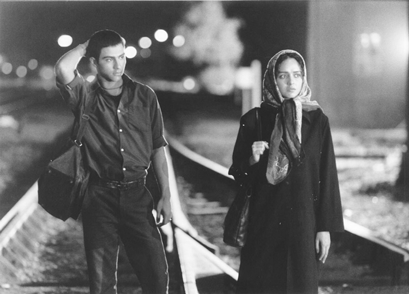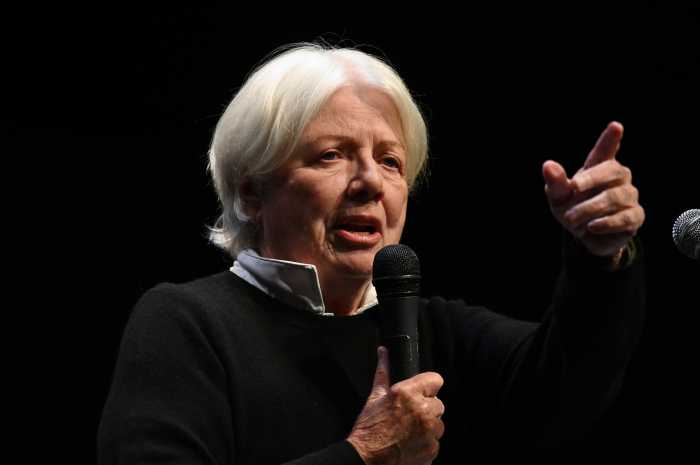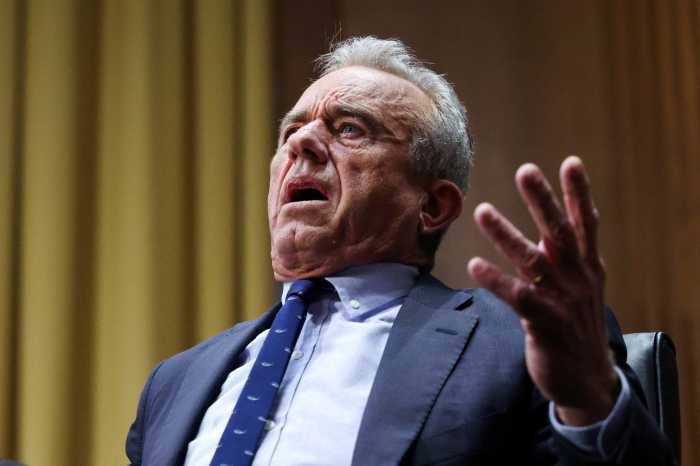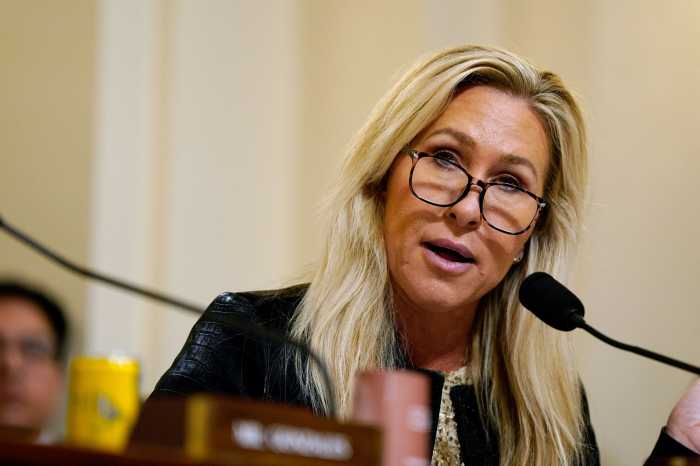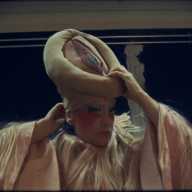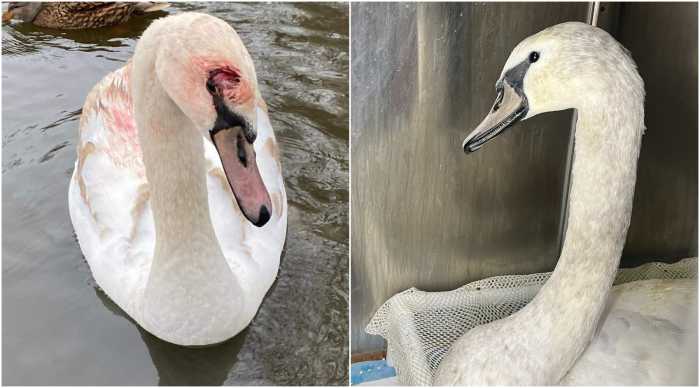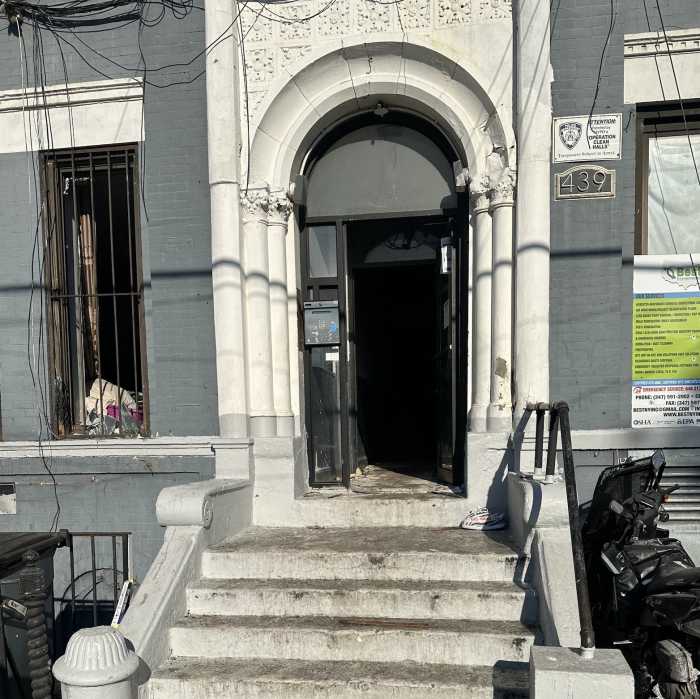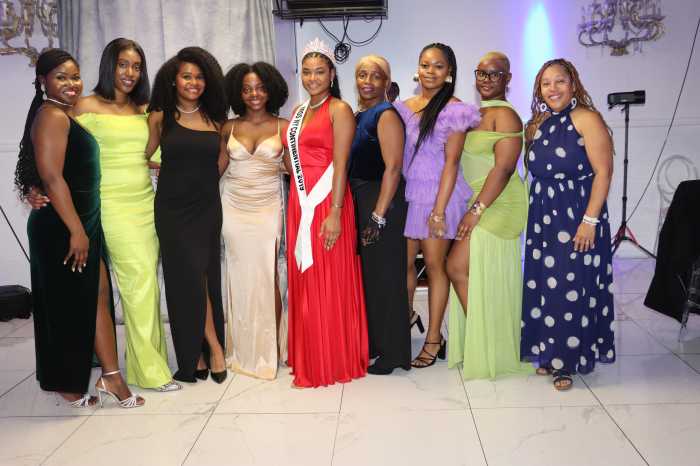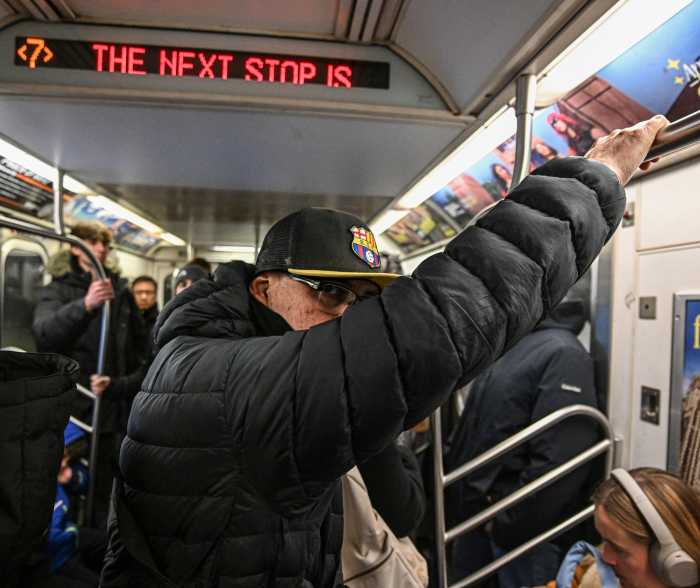New Iranian films head up an early spring of Persian arts and culture
The Persian Arts Festival enlivening Gotham all month long is enhanced by a choice complement of new Iranian cinema. Opening March 15 in a two-week run at Film Forum, Asghar Farhadi’s sophomore feature “Beautiful City” is a smoldering parable of youthful promise snuffed by immutable omertà and base hunger for retribution. A fortnight on, Iranian master Dariush Mehrjui surprises with an atypically buoyant comedy.
First seen locally in ArteEast’s spring 2005 season, “Beautiful City” opens inside a juvenile penitentiary, and goes on to imply that its characters all inhabit one vast penal colony. The permeable boundary between unfree and temporarily free is glimpsed in the frequency with which our young hero A’la (Babak Ansari) moves in and out of captivity, pursuing clemency for his bosom friend Akbar (Hossein Farzi-Zadeh), sentenced to death for murdering his teenage girlfriend.
This lurid backstory is key to the pulp heart pulsing within Asghar Farhadi’s knotty script and restrained direction. Akbar’s 18th birthday present is transfer to death row in the big house; trundled into the back of a van, the juvie warden simply counsels, “Adult prison is different.” The philosophically inclined warden, who bickers with his coworker like an old married pair, lets A’la twist his arm into granting permission to seek Akbar’s pardon from the decedent’s kin outside.
At Akbar’s address A’la is welcomed by a snarling, unsavory pest who minds the kiosk next door. When Akbar’s single-mom sister Firoozeh (Taraneh Alidoosti) pokes her head out, she and A’la meet not so cute, and the meddling badger gets a good tongue-lashing. Careworn and skeptical, Firoozeh grudgingly joins A’la to call on the murdered girl’s father Abolghassem (Faramarz Gharibian), a white-bearded “doctor” whose diagnostic methods appear to make rich use of intuition.
Handing A’la her baby, Firoozeh ventures inside, not for the first time, to beg the father’s mercy. When the little one grows tetchy, Abolghassem’s middle-aged wife (Ahu Kheradmand) elbows in and retreats indoors with it. Firoozeh gets kicked into the alley, exactly as she’d predicted, and wants to know where the baby went. Farhadi delivers a jolt when the wife pries the tot from her own teenage daughter Somayeh, a disabled recluse in black-rimmed specs and leg braces; for one awful moment a hostage scenario is conjured.
Angelic of mien, A’la displays a mongoose tenacity, escorting Firoozeh back home then returning to Abolghassem’s, busting in over the wife’s misgivings, reading aloud Akbar’s letter of contrition to the nonplussed elder, and following him through the streets into the local mosque, where the sympathetic imam preaches forgiveness for sins committed “out of ignorance.” The imam becomes a puckish co-conspirator to the young seekers, inveigling Abolghassem with benign sophistry.
Abolghassem at one point reaches up to the black-and-white photograph of his daughter on the mantle in his study, and moves it aside to reveal another framed photo, of his younger self and a handsome woman posed at a shrine, each facing the camera and smiling while laying their hands upon a holy vault, their infant daughter splayed on the ground between their feet. It transpires that his murdered daughter was the only reminder of his prematurely late first wife. His pain has so consumed him—on top of an already authoritarian personality—that nothing short of Akbar’s life will satisfy him; he even tries to sell his family’s house to raise the money needed for the court’s execution writ.
In this manner nothing is quite as it seems in “Beautiful City.” Everyone’s backstory hides entanglements, motivations are rarely straightforward, and heeding moral dictate is a reasonable guarantee of grief. The dilatory, expertly judged flirtation between Firoozeh and A’la is of course too hopeful to be true. Despite galvanizing her to spurn the sleazoid shopkeep who’d pimped her out for drug money, she forfeits her happiness to meet Abolghassem’s criteria for her brother’s exoneration. From a strictly secular vantage, it’s pulp of the first order.
There are a few too many folds in Farhadi’s plotting, and the pacing might now and then flag, but altogether “Beautiful City,” is beautifully achieved. Characters wend down dusty alleyways, details are divulged and propositions tendered on street corners, the narrative’s forking branches are mirrored in the mazy boulevards and overlapping train tracks outside Firoozeh’s flat, muted by crepuscular shadow even at noon. Modulated flourishes dot the minor-key palette, as when a starburst of polychrome fluorescent rods declares A’la and Firoozeh’s irrepressible attraction. Among a tight ensemble, Taraneh Alidoosti, well remembered from “I’m Taraneh, 15” (2002), carries the film in a state of grace.
ArteEast, in their indispensable series of Middle Eastern cinema at NYU’s Cantor Film Center, presents on March 28 the latest offering from Dariush Mehrjui, grandee of the Iranian new wave. A plummy departure from Mehrjui’s usual lacerating dramas, the commissioned romp “Mama’s Guest” kicks off when news of a surprise visit from a freshly married nephew launches the neurotic Mrs. Effat, played by Golab Adineh from “Women’s Prison” (2002), into hausfrau turbo drive. Scraping by with her family in a blue-collar apartment block, she single-mindedly sweeps the entire building into a madcap race to improvise a beggars’ banquet. She must save face; she has hardly anything else. Mehrjui tempers potential treacle into a gladdening paean to collective values.
gaycitynews.com

